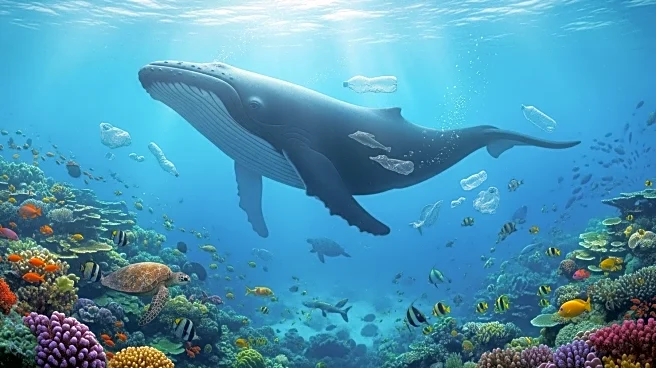What is the story about?
What's Happening?
A pygmy sperm whale was found in distress near Utila, Honduras, and later died despite rescue efforts. Researchers from the Kanahau Utila Research and Conservation Facility discovered an 11-inch plastic bag and parasitic infestation in the whale's stomach during a necropsy. These findings suggest a digestive blockage that contributed to the whale's death. The incident underscores the severe impact of plastic pollution on marine life, particularly in regions like Utila. Pygmy sperm whales are rare and elusive, making this event significant as it marks the first confirmed sighting of the species in Utila and one of the few in Honduras.
Why It's Important?
The death of the pygmy sperm whale highlights the broader issue of plastic pollution in oceans, which affects marine life globally. Pygmy sperm whales are rare, and their loss due to pollution emphasizes the vulnerability of smaller populations. Marine plastic pollution is estimated to kill over 100,000 marine mammals and more than 1 million seabirds annually. This incident serves as a stark reminder of the urgent need for effective measures to reduce plastic waste and protect marine ecosystems. Efforts to curb plastic pollution include local bans on single-use plastics and global initiatives promoting biodegradable alternatives.
What's Next?
Communities worldwide are implementing strategies to reduce plastic pollution, such as Extended Producer Responsibility (EPR) laws that hold manufacturers accountable for their products' lifecycle. Individuals can contribute by minimizing plastic use, opting for reusable containers, and supporting organizations dedicated to cleaning waterways. These actions are crucial in mitigating the impact of plastic pollution on marine life and preserving biodiversity.














